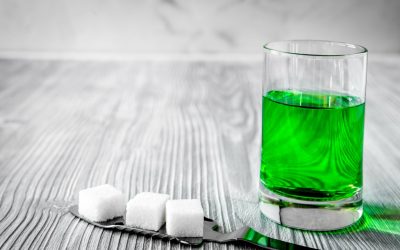Alcohol poisoning is a serious and sometimes deadly result of drinking large amounts of alcohol in a short period of time. Drinking too much too quickly can affect breathing, heart rate, body temperature and gag reflex. A night of drinking can leave us feeling unusually fatigued, dizzy, or shaky. PREGAME contains a combination of ingredients chosen by internal medicine physician Dr. Dan Nguyen, MD, MBA for their evidence-based abilities to support your body through alcohol consumption.
What’s the best hangover cure?
In addition, symptom https://ecosoberhouse.com/ management can help alleviate the specific symptoms of a hangover. For example, if one is experiencing light sensitivity, then it may be helpful to wear sunglasses or stay away from lights. If one is experiencing dizziness, then it may be helpful to drink water and lay down or sit still for some time.
Overlapping Symptoms
“Drinking too much or binge drinking on a single occasion or over time can take a serious toll on your health,” says , RD, a dietitian at Flourish Heights, who specializes in women’s health. These are a few specific ways in which alcohol can impact different parts of your body. For those who experience hangovers often, treatment for alcohol addiction is available through Behavioral Health Centers. Generally, the more alcohol you drink, the worse your hangover will be. Drinking on an empty stomach and not drinking enough water can also increase the likelihood of having a bad hangover. The duration of a hangover is typically between eight and 24 hours but can vary widely depending on a number of factors.
General Health
Ethanol has a dehydrating effect by causing increased urine production (diuresis), which could cause thirst, dry mouth, dizziness and may lead to an electrolyte imbalance. Studies suggest that electrolyte changes play only a minor role in the genesis of the alcohol hangover and are caused by dehydration effects. You may think you fall asleep and stay asleep longer after consuming alcohol, but the type of sleep you get does more harm than good. Instead, it is shorter, disrupts body temperature, and prevents hormone and cortisol release. These are some of the reasons you feel more fatigued when you wake up after a night of drinking alcohol. More-serious symptoms from heavy drinking may be a sign of alcohol poisoning — a life-threatening emergency.
- Hangovers result from the body’s responses to harmful byproducts of alcohol metabolism, dehydration, and the loss of essential vitamins and minerals.
- In a 2010 study, researchers compared participants’ self-reported hangover severity after drinking bourbon or vodka.
- If drinking again immediately makes you feel better, this is definitely a red flag (and, furthermore, meets one of the criteria for the diagnosis of an alcohol use disorder).
- You might feel weak, tired, moody, or have trouble focusing—all classic hangover symptoms.
- At the end of the day, the only surefire way to prevent a hangover is to drink in moderation or stop drinking altogether.
- Your health and wellbeing should always be your top priority.
Treatment options are also available for those suffering from alcohol addiction. On average, the body processes one alcoholic drink per hour. Consuming many drinks in a short period increases the likelihood of a hangover after the effects of alcohol wear off. Most hangover symptoms disappear independently after your blood alcohol concentration (BAC) drops significantly. However, it’s not unusual for the symptoms to last up to 24 hours. A hangover is a feeling of illness that occurs after alcohol consumption.
These factors include the frequency of use, the person’s metabolism, and the amount of cocaine used. If you’re 21, your ability to detoxify alcohol is different than if you’re 40 (or even 28), says Dr. Pedre. “As we get older, our cells age, and we might not be able to process toxins as we did when we were younger,” he says. That hangovers generally last for about 14 to 23 hours, with some extending up to about the 72-hour mark. But on average, a hangover should end about 12 hours after stopping drinking.
What should I avoid while hungover?
The intensity of a hangover—and how long it sticks around—isn’t always straightforward. A few key factors are responsible for turning a mild inconvenience into a full-blown crisis. Because individuals are so different, it is difficult to predict when does a hangover end how many drinks will cause a hangover.
According to the National Center for Biotechnology Information, 75% of the general population that drink moderately have frequent hangovers. Get professional help from an online addiction and mental health counselor from BetterHelp. Consuming alcohol leads to several bodily actions that lead to dehydration, including an increase in urination, sweating, vomiting, and diarrhea.
How much alcohol do you have to drink to feel hangover symptoms?
An over-the-counter (OTC) pain medication may relieve hangover headaches and muscular pains. Take these medications with a meal to avoid stomach irritation or further harming your stressed liver. what is alcoholism Cleveland Clinic’s primary care providers offer lifelong medical care. From sinus infections and high blood pressure to preventive screening, we’re here for you.




